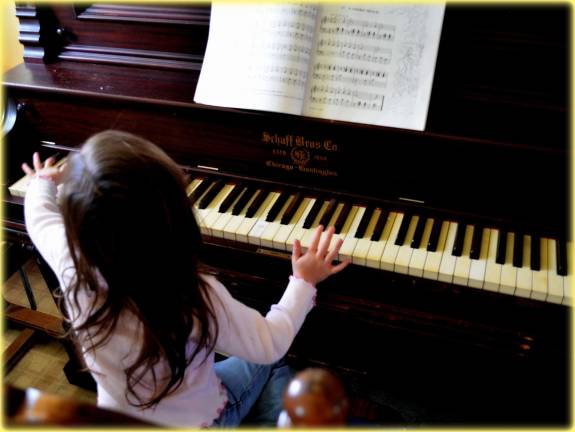Early musical training helps hearing in later life

A new study has found that music lessons in childhood keep the brain — and hearing — sharp well into old age.
Even adults who haven’t played an instrument for almost 40 years benefited from practice put in decades earlier, according to researchers from Northwestern University. "Today, music education is at high risk for being cut from schools in the United States," the researchers wrote. "School districts with limited financial resources prioritize science, math, and reading since music is often considered a nonessential component of the curriculum. Here, we show a neural enhancement linked to a moderate amount of music training many decades after training has stopped."
The study looked at how quickly the brain makes sense of sounds. Someone who processes sound more slowly may find it more difficult to hear a conversation with noise in the background.
The more years the men and women in the study had spent learning a musical instrument in youth, the faster the cells, or neurons, in the brain, responded to sound. Those who had put in at least four years of practice were around a thousandth of a second faster than those who had never learned an instrument. A millisecond compounded over millions of neurons can make a big difference.
It did not matter what instrument the subjects played, or whether they were taught in classrooms or private lessons.
Aging results in pervasive declines in nervous system function. In the auditory system, these declines include delays in responding to fast-changing speech elements. These age-related declines are not inevitable, however, the researchers say. Older adults with a lifetime of music training do not exhibit neural timing delays. Yet, many people play an instrument for a few years without making a lifelong commitment. The researchers examined neural timing in a group of older adults who had from four to 14 years of music training early in life, but who had not played an instrument for decades. The researchers found that even a moderate amount of early music training is associated with faster neural timing in response to speech long after training stopped. The researchers are now conducting a study to determine the benefits of music lessons started in adulthood.
Another study at Northwestern found that people who are better able to move to a beat show more consistent brain responses to speech than those with less rhythm. The findings suggest that musical training might sharpen the brain's response to language.
Previous have studies shown a link between reading ability and beat-keeping ability as well as reading ability and the consistency of the brain's response to sound.
"Rhythm is inherently a part of music and language," said Nina Kraus, one of the researchers. "It may be that musical training, with an emphasis on rhythmic skills, exercises the auditory-system, leading to strong sound-to-meaning associations that are so essential in learning to read."